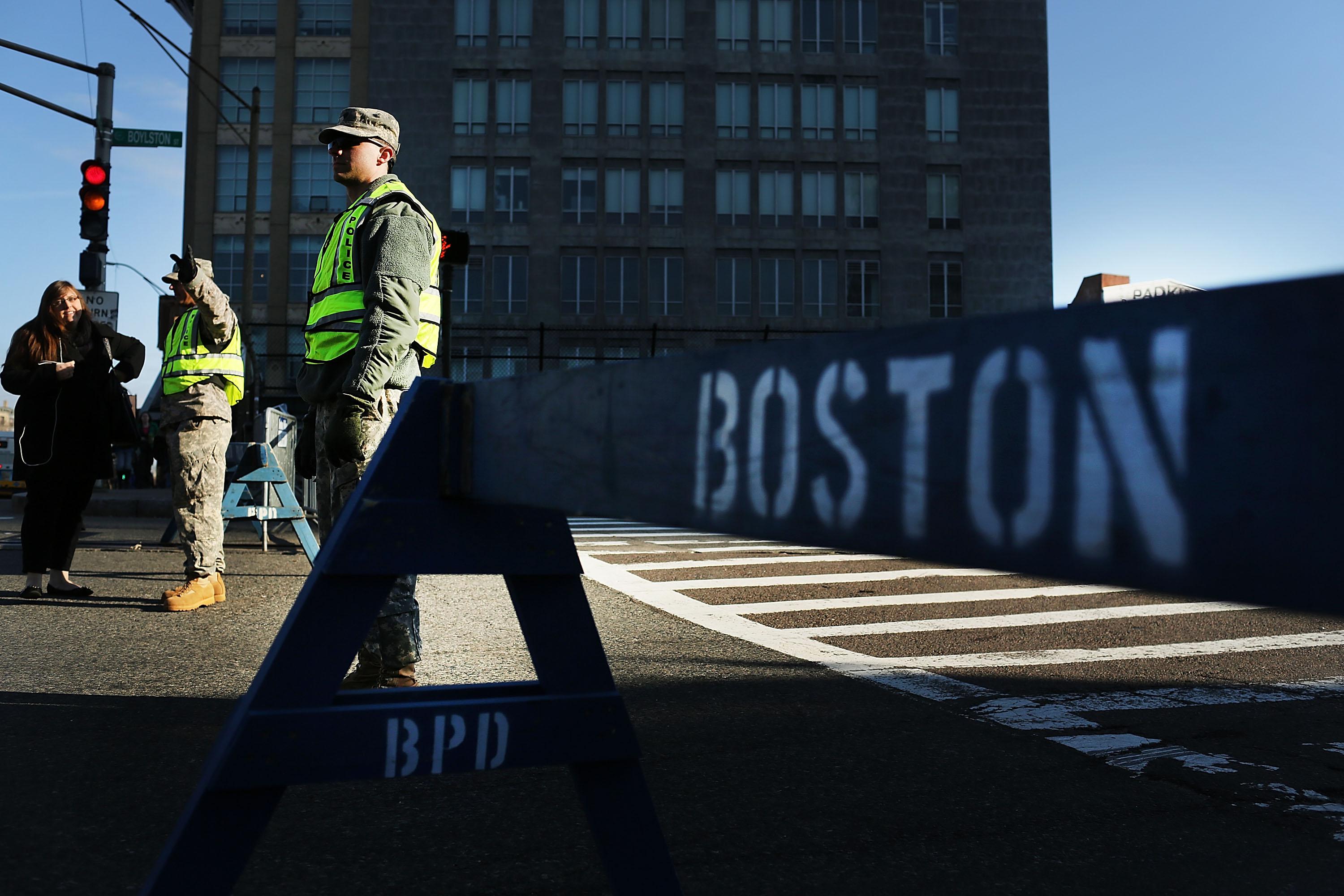I wish I could share Dave Weigel’s optimism that conspiracy theorists won’t have much to latch onto regarding the bombing of the Boston Marathon, even though conspiracy theorist extraordinaire Alex Jones was claiming within 90 minutes of the bombing that it was a “false flag” operation designed to expand government power. Weigel cites the number of cameras that were rolling to capture the action, the quick debunking of bad information, and the relative weakness of the already-brewing conspiracy theories as reasons to hope that conspiracy nuts won’t be able to run with this one. But I disagree; I think the most and possibly only relevant question when it comes to whether or not a conspiracy theory will spread is, “Does this fill people’s emotional needs?”
Weigel addresses that briefly, claiming there’s no political angle to all this:
“No politician really stands to gain. This was supposed to be the week of liberal breakthroughs on guns and immigration. Both of those issues, and related bills, fade from the priority list for a few days. If you give the 9/11 conspiracy theorist a ton of credit—and why would you?—he draws a line from the aftermath to the PATRIOT Act and the Iraq War. The Sandy Hook conspiracy theorist points out that we got a debate on gun control. The reaction to a bombing at a marathon will bring… what? Unenforceable security standards on all city streets? Further militarization of police forces, something that was already under way?”
So far, Jones is spinning out nonsense about the TSA at sporting events and the price of gold, but what he’s likely afraid of is that this is a repeat of what happened during Clinton’s second term. At that time, a surge of right-wing domestic terrorism drew unwanted negative attention to the right-wing fringes that Jones happens to make his living selling books and videos to. Obviously, we have no idea right now who did this or why, but Jones is aware—as we all are—that one of the possibilities is a Timothy McVeigh- or Eric Rudolph-type character. Jones got his start claiming that the Oklahoma City federal building bombing was a setup, probably in part because he shares McVeigh’s belief that the Branch Davidians were innocents murdered by the federal government. (The likely truth is that they set themselves on fire rather than surrender and face justice for their crimes.)
Public Policy Polling recently surveyed Americans to measure belief in conspiracy theories, and what’s interesting about it is that the popularity of conspiracy theories has little to do with the clarity of the evidence against them and everything to do with people’s need to believe. Some of the most popular conspiracy theories are that global warming is a hoax, that vaccines cause autism, and that JFK was murdered by a shadowy cabal. (In fact, only 25 percent of Americans correctly identify JFK’s killer as Lee Harvey Oswald, acting alone.) Less popular ones are the belief that the moon landing was faked, that Paul McCartney is dead, and that airplane exhaust is a mind control agent.
Strictly in terms of plausibility, I’d say it’s easier to believe the moon landing was staged by the U.S. government in an attempt to intimidate the Soviet Union than believe that a worldwide conspiracy of thousands of scientists and nearly every world government is lying about global warming (though both theories are nonsense). The moon landing would be easier to stage and easier to cover, by a factor of thousands, probably. So why is the global warming hoax a more popular conspiracy theory? Because believing global warming is a hoax makes some people feel better about themselves and their giant, gas-guzzling cars. There’s no emotional value to believing that the U.S. fabricated the moon landing, unless you’re a devout communist trying to convince yourself the Soviet Union is the victim of American propaganda.
That’s why it’s impossible to speculate meaningfully about the salience of any conspiracy theories for now. The political implications could be huge, or they could be minuscule, depending on who did it, why they did it, and whether or not they take credit for it when they’re caught.
